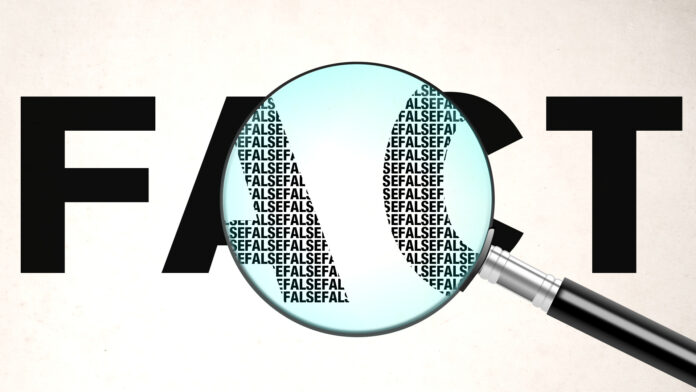Meta boss Zuckerberg announced earlier this year that Meta had disbanded Facebook and Instagram’s independent fact-checking programme. Meta will instead use a form of Community Notes, similar to that introduced by X after owner Elon Musk dumped third-party fact-checking when he bought the company then known as Twitter in 2022.
Instead of independent experts being used to verify information in a third-party model, the Community Notes model leaves it to the social media community to decide if posts are potentially misleading.
This has led to concerns there will be an onslaught of conspiracies and misinformation. But while that’s certainly a danger, those in what could be called the ‘fact-hunting world’ might caution against simplistic assertions of fact.
There is a strong argument that true fact-checking might always have been unobtainable and that ‘false-checking’ — or calling out obviously false statements — might be a more realistic goal.
Problem with fact-checking:
Ironically, a test used to identify people most likely to subscribe to conspiracies hints at some of the obstacles to genuine fact-checking.
The Generic Conspiracist Beliefs Scale is popular in academic psychology for measuring how likely someone is to think in conspiratorial ways.
The scale does not measure how much someone follows a particular conspiracy theory — for example “the moon landing was faked”, or “the Kennedy assassination was an inside job” — but instead how likely they are to endorse any alternative explanation for how the world works.
Some facts about ‘facts’:
Many have condemned Meta’s decision to abandon independent fact-checking, suggesting it is opening up a world of heightened conspiratorial thinking.
That’s probably true but perhaps it is also time for those who like the idea of good knowledge to consider the construction of facts with more care.
Even assertions of fact stemming from the world of science — for example, the assurance early in the COVID-19 pandemic that wearing masks wasn’t important — can quickly unravel.
This leads to a direct loss of trust in science and government.
Facts just aren’t that simple: there is actually relatively little known about the world with the certainty that’s implied by the term ‘fact’.
In a sceptical world, there should be a distinction between acknowledging there are facts and that they might be known, but also that, in some cases at least, the truth can never really be confirmed.
It’s well accepted that it’s much easier to prove something is false (falsification) than to prove it is true (verification). Indeed, this realisation underpins much of modern science.
If verifying facts is so hard, the fact-checking challenge becomes how far from ‘not false’ is good enough.
Fact-checking is complex and nuanced. There is a difference between providing the analysis of claims like the ABC used to do and only highlighting what is viewed as misinformation then linking to the fact-checking, which is what Meta did.
And there are questions over what level of information fact-checking should target: should it examine a single claim, an article or go all the way to the group, individual or company making the claims? In the past, Meta has talked in terms of posts, pages and groups.
So what can be done in the current climate?
It is good to call out falsehoods wherever they are raised but it’s also important to be a little more humble when claiming to be asserting ‘facts’.
In that context, ‘false-checking’ might be a more honest — and more achievable — aim than fact-checking.
About authors:Will Grant and Fabien Medvecky are associate professors in science communication at the Australian National Centre for the Public Awareness of Science at the Australian National University.
This is an abridged version. Originally published under Creative Commons by 360info™.





